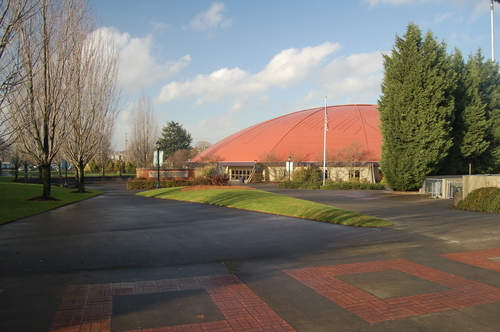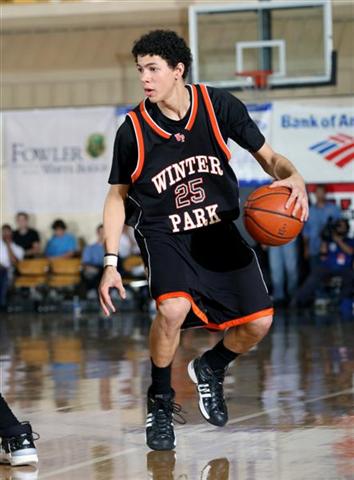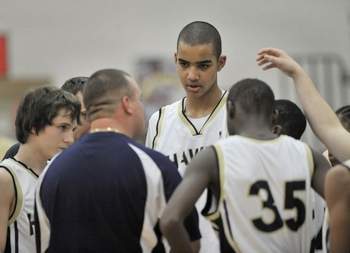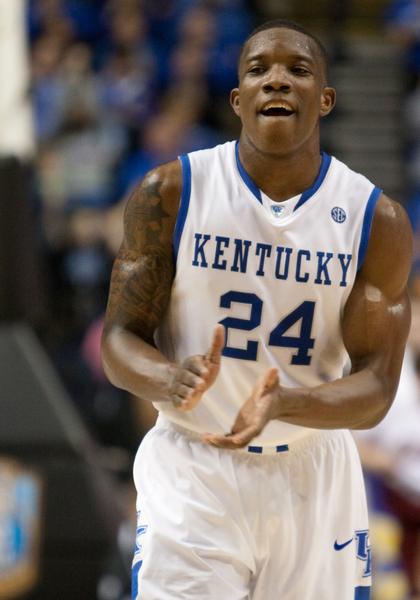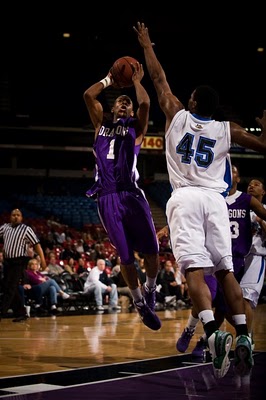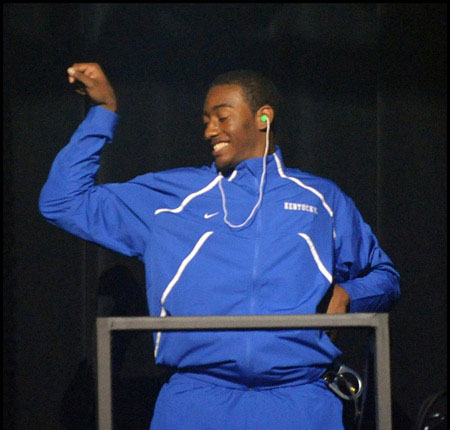In Their Words: Life at the Mid-Major Level (part three)
Posted by rtmsf on October 5th, 2010Andrew Murawa is the RTC correspondent for the Pac-10 and Mountain West Conferences and an occasional contributor.
To read the entire In Their Words series, click here.
Part Three: SCHEDULING
Over the summer, we’ve spent time hearing about some of the next big-name recruits on their way to college basketball: Jared Sullinger and Harrison Barnes, Anthony Davis and Michael Gilchrist. We’ve heard the big-time schools announce their high profile games on their upcoming schedules: Kentucky going to the Maui Invitational and visiting North Carolina, Michigan State hosting Texas and going to Duke. But for the vast majority of Division I programs, they’ve been flying under the radar. There are at present 73 teams that participate in basketball in the six BCS conferences, but there are 347 total programs in Division I. Of those other 274 programs, there are certainly quite a few big-name programs: last year’s national runner-up Butler comes to mind immediately, as does Gonzaga, Memphis and a handful of other schools in conferences like the Atlantic 10 and the Mountain West. But, we were also interested in how the other half (or really, how the other three-quarters) lives, so we spent some time talking to coaches, athletic directors and other people around the country affiliated with some of those other schools — those non-BCS schools, those “mid-majors” — and we asked them about how they recruit, how they create a schedule, how they market their programs, and quite a few other things. Over the next eight weeks, we’ll let them tell you their story, in their own words.
To begin, let me introduce and thank this week’s cast of characters:
- Tommy Dempsey, Head Coach, Rider – Dempsey enters his fifth season as the head man at Rider, following two seasons as an assistant. He has compiled an 83-75 record over that time and coached NBA lottery pick Jason Thompson during his time there.
- Murry Bartow, Head Coach, East Tennessee State – Bartow is entering his eighth season as the Buccaneers head coach, after having previously succeeded his father Gene Bartow as the head coach at UAB. Bartow has posted a 118-72 record in his years at ETSU and has racked up 241 total wins and four NCAA appearances in his 13 seasons as a head coach.
- Larry Williams, Athletic Director, Portland: Williams has been the AD at Portland for six years now following a five year stint as the head of licensing and product marketing at his alma mater Notre Dame. Williams was a two-time All-American offensive lineman with the Irish before starting 44 games in the NFL.
- Eric Brown, Assistant Coach, Long Beach State – Brown enters his fifth year as an assistant on head coach Dan Monson’s staff, after previously having spent time on coaching staffs at Cal-State Northridge, USC and Iowa State.
- Chris Caputo, Assistant Coach, George Mason – Caputo is entering his sixth season as an assistant coach for the Patriots after spending the previous three seasons as an administrative assistant and video coordinator under head coach Jim Larranaga.
- Eric Reveno, Head Coach, Portland – Reveno heads into his fifth season at Portland having turned around a program from a team that was 18-45 in his first two seasons to a team on the rise with a 40-24 record over the last two seasons. Reveno spent his previous nine seasons as an assistant at Stanford, his alma mater where he was a Pac-10 Conference All-Academic Team selection as a senior.
Last time out, the topic was recruiting. This time around, we’ll take a look at how mid-major programs feel about putting together their non-conference schedules and the different strategies that are used in order to line up games. It’s a part of the sport that doesn’t get talked about a whole lot, but it can have a big impact on how the program is perceived, and in turn, can impact a program’s ability to recruit successfully. One theme emerges as pretty unanimous: this is not a part of the job that is a lot of fun.
Tommy Dempsey, Head Coach, Rider: It’s brutal.
Murry Bartow, Head Coach, East Tennessee State: It is tough. Recruiting is number one certainly, but scheduling is not an easy thing.
Larry Williams, Athletic Director, Portland: It really is, next to recruiting, the hardest thing we do in trying to run a basketball program.
While just about everyone at the mid-major level agrees that the scheduling process ranges from unpleasant to demoralizing, each program is able to develop their own strategies for filling in a schedule.
Eric Brown, Assistant Coach, Long Beach State: Different programs have different philosophies. You have home-and-home series where a school will come to your place one year and you agree to go to their school the following year. There are guarantee games where the larger school will pay you to go play them or you can pay a smaller school to come play you. And there are tournaments. There are different ways to do it.
To begin with, a school has to decide what it wants from its non-conference slate, and what it can reasonably get. Non-conference schedules are generally filled in with a combination of home-and-home agreements (where each school in the game will agree to play one game against the opposing team on their own home floor and the opponent’s home floor), guarantee games (where one team, usually a bigger school, will pay another team to come to their arena for a game), early season tournaments and other neutral-site events. At Long Beach State, they have shown over the past couple of years that they aren’t afraid to take on a scary-looking schedule. Last season they played the toughest non-conference schedule in the country, with games at Notre Dame, Texas, Kentucky and Duke and neutral site contests against Clemson, West Virginia and UCLA. It doesn’t get any easier for the 49ers this season, with road trips to Washington, Utah State, North Carolina and Arizona State combined with neutral site games against St. Mary’s and Clemson (with two others to be determined by the results of an early-season tournament), and a home game against San Diego State.
Brown: We try to play some home-and-home series with teams in our region and then Coach (Dan) Monson’s philosophy is, given that the way our conference is set up and that every year only one team from our conference is going to the NCAA Tournament, his philosophy is to go play bigger schools so that when we get into our conference or into the NCAA Tournament, we’re not shell-shocked. We’ll play three guarantee games against three bigger schools, three BCS conference schools, where they’ll pay us to go play them. We also like to get into a tournament because they can guarantee three games where they only count as one game against your schedule. Like for instance last year, we were at the 76 Classic in Anaheim and this year we’re going to the Paradise Jam in the Virgin Islands.
Chris Caputo, Assistant Coach, George Mason: As far as Coach (Jim) Larranaga’s philosophy, he looks for balance in the schedule. You’ve got to play a certain amount of home games, a certain amount of road games and some sort of preseason event that is on a neutral site. I think that’s the key thing for us.
Balance in the schedule is the ideal for most mid-majors, mixing a handful of tough games with games against teams that they should beat, and finding a relatively equal number of road games for every home game on the schedule. But it is hard to achieve balance in a schedule when it is very difficult to get high-major and BCS-conference schools to come to your place, especially when you’ve had some previous years of success.






























